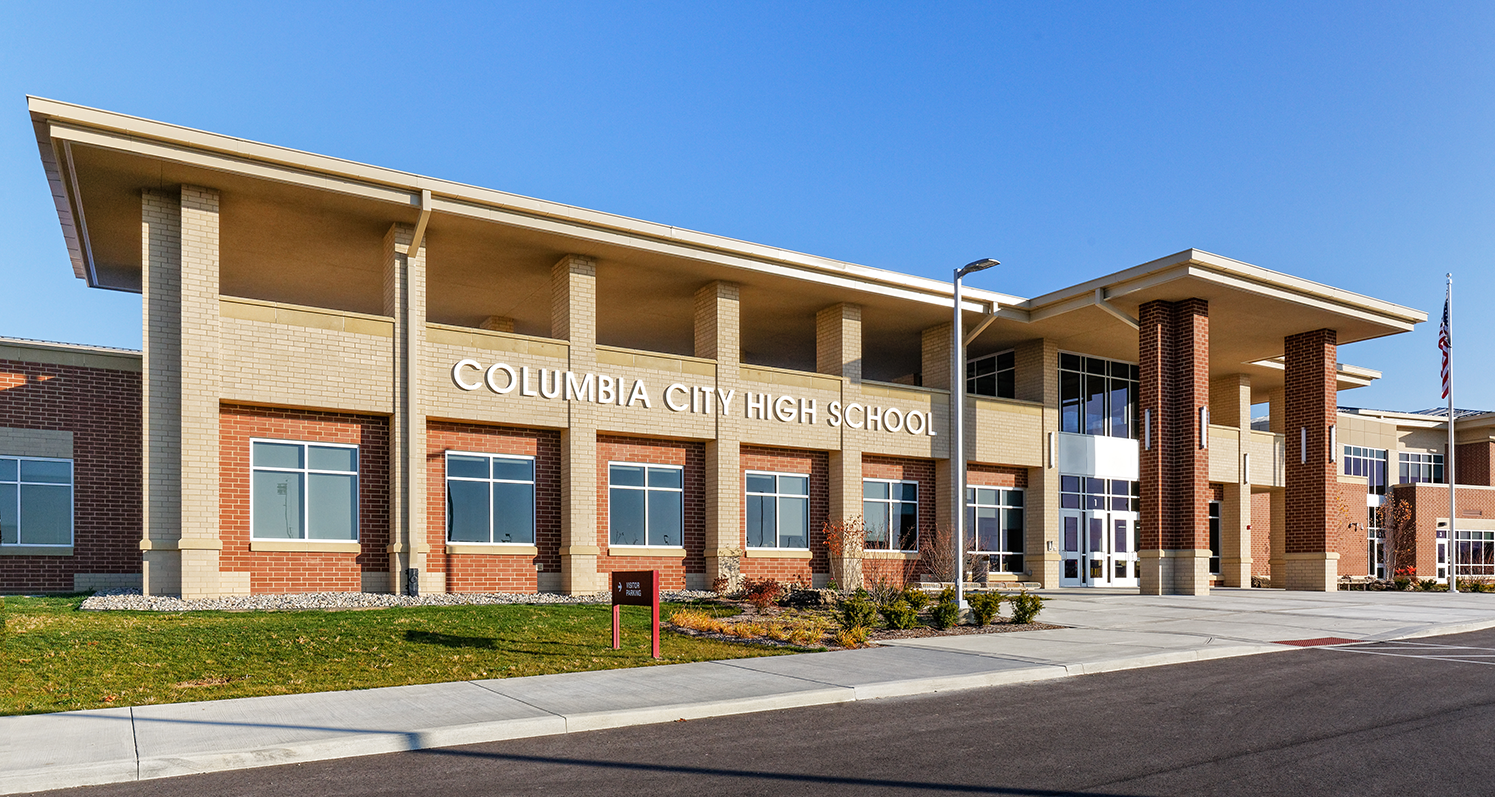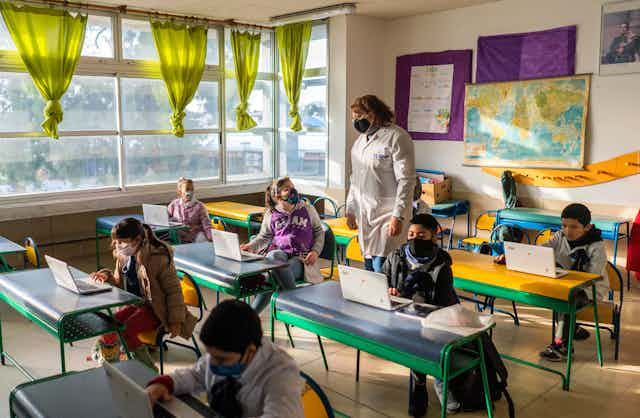Fundraising Ideas to Conserve Temecula Schools and Programs
Fundraising Ideas to Conserve Temecula Schools and Programs
Blog Article
The Impact of College Environments on Academic Success and Personal Well-Being
The institution setting substantially affects both scholastic success and personal wellness, incorporating aspects such as physical layout, classroom ambience, and interpersonal characteristics. The design of educational rooms, including natural illumination and ergonomic furniture, can boost trainees' focus and comfort. The high quality of teacher-student relationships and the nature of peer interactions play crucial roles in promoting an atmosphere conducive to discovering and emotional assistance. Comprehending exactly how these various elements interaction to shape student end results raises crucial concerns regarding optimizing academic settings for holistic advancement. How can colleges tactically improve these aspects to better support their pupils?
Physical Design and Style
How does the physical format and design of a college effect scholastic success? The plan and aesthetic of a college atmosphere can dramatically influence pupils' learning end results. A well-designed institution design advertises convenience of activity, decreases distractions, and cultivates a feeling of safety and belonging. For circumstances, vast hallways and clearly significant areas assist in smooth transitions in between classes, lessening lateness and disruption. In addition, strategically positioned usual areas motivate social communications, which are important for emotional and social advancement.
All-natural lights and effective air flow systems are critical in improving cognitive feature and reducing absenteeism. Research studies have actually revealed that classrooms with sufficient natural light enhance trainee concentration and minimize sensations of drowsiness. Ergonomic furnishings customized to trainees' needs can avoid physical discomfort, allowing for extended emphasis and interaction in scholastic activities.
Accessibility to outdoor spaces and cosmetically pleasing environments also play a critical role - Save Temecula Schools. Environment-friendly spaces and well-maintained school grounds provide opportunities for workout and psychological leisure, both of which are necessary for keeping high degrees of scholastic efficiency. Essentially, a thoughtfully created physical environment can function as a driver for academic excellence, fostering an ambience that supports both training and learning
Classroom Ambience
An environment that cultivates a sense of safety, inclusivity, and shared respect motivates trainees to involve more proactively in their understanding procedures. The ambiance of a classroom, consisting of facets such as illumination, noise degrees, and seating setups, can substantially affect trainee focus and motivation.
In addition, the classroom atmosphere ought to sustain a culture of cooperation and open communication. They are a lot more most likely to involve deeply with the product and establish important thinking skills when students really feel comfortable revealing their ideas and asking concerns. Peer communications and group activities can boost knowing by fostering and giving varied perspectives team effort
Additionally, developing consistent routines and clear expectations can create a structured environment that permits trainees to focus on their researches. By lessening unpredictability and providing a foreseeable structure, students can much better handle their time and responsibilities. Eventually, a favorable classroom atmosphere not just boosts scholastic performance but likewise adds to the general well-being of students, preparing them for future educational and individual undertakings.
Teacher-Student Relationships
Structure on the relevance of a favorable class atmosphere, the connections in between educators and students play a pivotal function in forming academic success. A healthy teacher-student relationship cultivates a finding out environment where students feel valued, recognized, and supported, which dramatically enhances their motivation and why not try here engagement. When trainees regard their teachers as approachable and compassionate, they are more probable to get involved proactively in class and seek aid when needed, adding to a deeper understanding of the subject issue.

Efficient communication is crucial to nurturing these connections. Educators who employ open, considerate, and regular interaction create a structure of trust. This trust fund allows pupils to reveal their concerns and ideas freely, promoting a collective discovering atmosphere. Fundamentally, strong teacher-student partnerships are a foundation of educational success, playing a crucial function in both academic success and individual growth.
Peer Communications
Peer communications considerably affect scholastic success by forming a trainee's cognitive and social growth. Within the school setting, peer relationships function as a fundamental part for discovering and individual growth. Positive peer interactions can boost a pupil's inspiration and engagement in academic activities via collective learning and common support. When pupils function with each other in group setups, they exchange concepts, resolve issues collectively, and establish critical assuming skills. Such communications promote a sense of belonging and neighborhood, which is important for emotional wellness and academic determination.

Reliable peer communications also add to the growth of crucial life skills, such as conflict, communication, and cooperation resolution. These social competencies are vital for both scholastic success and individual well-being, underscoring the relevance of cultivating favorable peer characteristics within the college environment.
After-school Activities
Engaging in extracurricular tasks plays an essential duty in a student's scholastic success and individual growth. Study continually shows that pupils who get involved in extracurricular tasks often tend to attain greater academic performance.
Additionally, extracurricular involvement promotes a feeling of belonging and community, which is vital for personal health. Joining group tasks enables pupils to construct and reinforce social media networks, boosting their social and emotional intelligence. These interactions are vital for creating interpersonal skills that are valuable in both academic and future expert environments.
Additionally, extracurricular tasks offer a constructive outlet for students to explore their passions and passions beyond the typical curriculum. This exploration can cause the exploration of brand-new skills and prospective profession courses, even more encouraging pupils to involve more deeply in their scholastic work. In final thought, the duty of extracurricular activities prolongs beyond simple entertainment; they are indispensable to fostering an all natural academic experience that promotes both scholastic success and personal growth.
Conclusion
In sum, the impact of college settings on both scholastic success and personal health is extensive. Thoughtfully created physical formats and class, along with positive teacher-student relationships and visit our website constructive peer interactions, considerably boost student inspiration and interaction. The visibility of encouraging teachers can mitigate stress, fostering a supporting ambience conducive to all natural growth. These elements collectively emphasize the relevance of creating and preserving optimal institution settings for the benefit of trainees' personal and scholastic growth.
Inevitably, a positive class atmosphere not only boosts scholastic efficiency however also adds to the total wellness of trainees, preparing them for future educational and individual endeavors.

Report this page